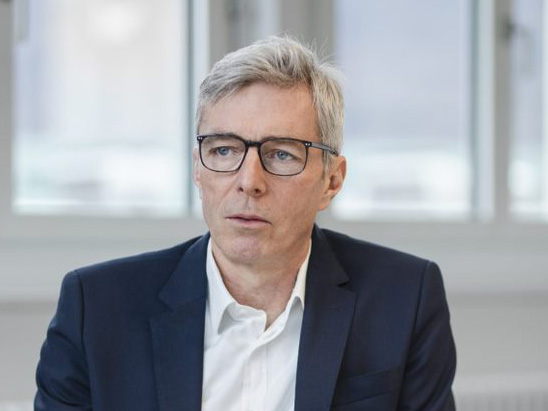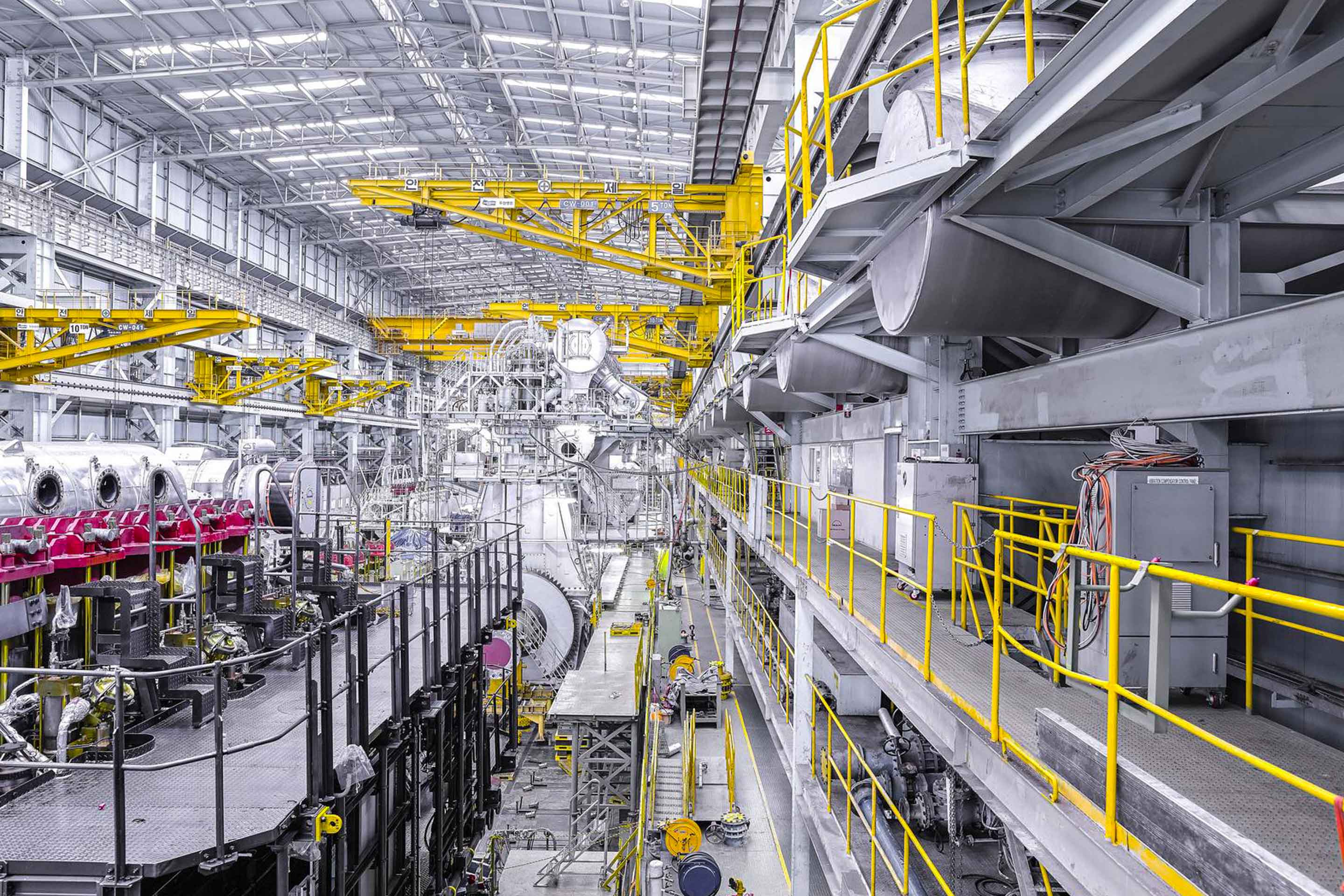In a recent interview with Power Engineering, Accelleron’s Christoph Rofka discussed how decarbonization is impacting the turbocharging industry, along with highlighting Accelleron’s focus over the next decade.
What technology trends are you seeing in the sector?
In terms of R&D, the focus is on the internal combustion engine, decarbonization and sustainability.
We see that in many of the industries we serve, the focus is on lower emissions, or net zero carbon fuels. I would say the industry has realized the pathways to decarbonize and is narrowing down the selection of future fuels.
This is keeping the engine builders and the technology providers busy, and they have started to allocate resources and R&D budgets to this.
I personally believe that will be the dominant spend and topic for the next decade – making technologies ready for the uptake of greener fuels.
Is there good momentum in decarbonization efforts?
We see good momentum from customers in the marine sector, such as cargo owners. But also the end user and environmental activists are demanding sustainability from industry.
Equipment makers have shifted their R&D spend already, and there’s good momentum from financial institutions that guide their financing portfolio toward sustainability goals.
I think what is lagging behind is the regulatory framework. You have to price carbon, otherwise the uptake of significantly more expensive carbon neutral fuels will be a challenge.
The legacy regulatory bodies have to catch up.
In the energy sector there are national differences, but most countries have committed to quite ambitious sustainability and emission reduction targets.
Are we on track to meet these emissions targets?
We have seen an exceptional uptake of LNG newbuild contracting last year, which is not net zero, but at least is 20% lower in carbon intensity.
Then towards the end of last year and into this year, we see that methanol is gaining momentum. And the industry is preparing to have the first contracts for ammonia with deliveries from 2025 onwards.
This is good momentum. However, to produce more of these clean fuels, we need more renewable electricity and green hydrogen or sustainable biomass.
And the big investments are still lacking, as well as the infrastructure to encourage ship owners to decide on, for example, green methanol. They need to find their own collaboration network with companies to produce this at a sufficient amount.
But when regulation and governments give the right signals, it will change.
In the energy sector, we see countries around the world increase their share of renewables in their electricity systems. The question becomes what is the role of the internal combustion engine with an increasingly higher portion of wind and solar in the electricity system.
You can’t predict the weather. You need fast response, carbon neutral technology in these systems and I think this is where the internal combustion engine finds a very important role, balancing and stabilizing the grid and running ultimately on net zero carbon fuels, which will likely be hydrogen.
What is the impact of hydrogen on the sector?
In today’s gas engines you can blend a decent portion of hydrogen, up to 25% in a commercially operating plant in the US, but that’s not a big deal.
To go to 100% hydrogen with today’s technology, you would need to change the engine significantly, or you derate, which means that you cannot run at full output… not even close.
This is a headache because you pay a higher specific price, you get less power out of the same hardware.
To develop a hydrogen engine with the same power density as today’s fossil based engines is still a few years away. It’s not impossible though, with the increased R&D spending and development and adaptation in these fields.
Hydrogen is a lot more difficult to handle. We will eventually see pure hydrogen engines, but will we see a hydrogen engine with the same full output? I think it’s still five years down the road.

How has digitalization impacted the industry?
Digitalization for our own operations is a no-brainer.
We actually started our digitalisation journey with the acquisition of a small startup like company many years ago and have developed their product towards a digital engine advisory system.
We are now able to provide this software offering on fleet level.
The system compares the actual operation of the engine to the factory acceptance test and advises the operator to tune the engine to ensure it performs at its best.
When we bought it, it was an Excel-based system and you had to run around the engine taking many measurements and typing it into the Excel sheet.
Today, it’s all automated with data transfer to the cloud, and customer access to a portal with great visualizations.
By expanding our digital offering, we also get access to operational data, which helps shape our service offerings. It gives us more flexibility and decreases the risk of shaping our offerings.
That’s how we use it internally. But we also use digitalisation in our next generation of products and hardware concepts, as well as combining them with digital offerings. It’s important to ensure the hardware and software, which take different lengths of time to develop, are compatible and fit together.
In terms of the broader industry, digitalization will have a huge impact on how you run your assets.
What is Accelleron’s focus for the next decade?
Our number one priority is to support the industries we serve and their journey towards decarbonization, as well as the digitalization that comes with that.
Of course, our core business is turbocharging – which is a very interesting journey.
In the past, it took five years to develop a new turbocharger or engine, and then another five years to ramp it up. These are extremely long development cycles.
But if we look where we are now, and where we will be in 10 years, there’s a lot of uncertainty. The only thing we know is that these future fuels will come and need to come. But we don’t really understand the full impact yet.
We have to move forward, learn as we move forward, and adapt our technologies and offerings accordingly. It’s a completely different approach and mindset.
In terms of developing hardware, we have to learn fast and adapt fast. We are aligning the traditional long development cycles with very short learning cycles.
It’s an interesting journey and requires the whole organization to adapt to these fast learning cycles in order to maintain a competitive advantage as we move forward.
What does your role at Accelleron mean to you?
For me, it’s about being part of this decarbonization journey – it’s such a noble purpose. I have been in this industry for many years but I’ve never been so excited.
I grew up making our turbochargers capable of burning heavy fuel, the cheapest but also the dirtiest thing you can think of. My daughters were not very proud of what I was doing. But now I feel it’s completely different. And from this motivation, we change and adapt the way we work and the mindset of the organization. It’s fun and super motivating.
This interview originally appeared in Power Engineering. Read the full interview here.














